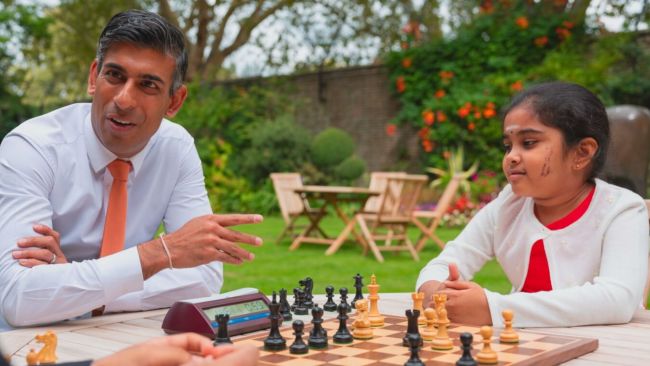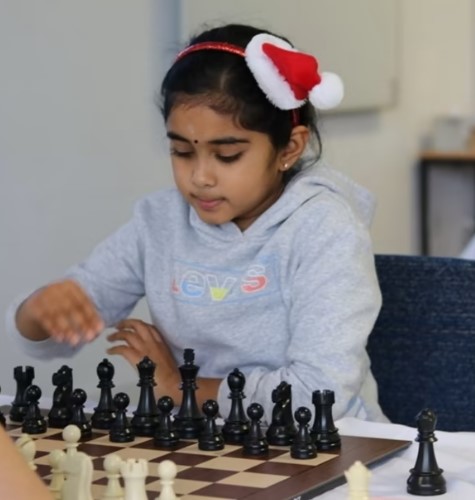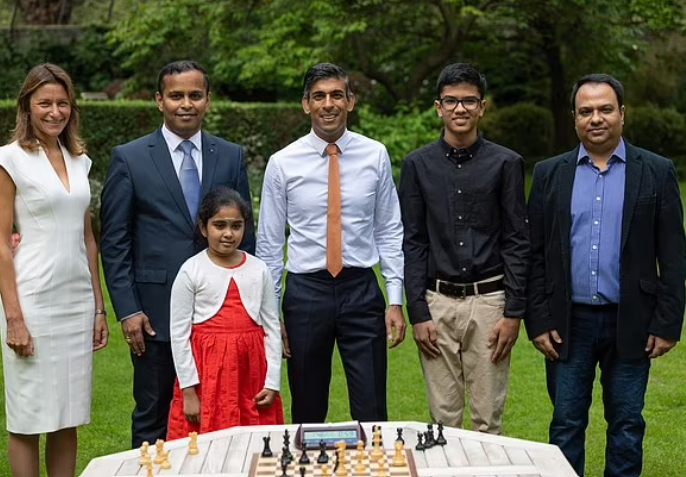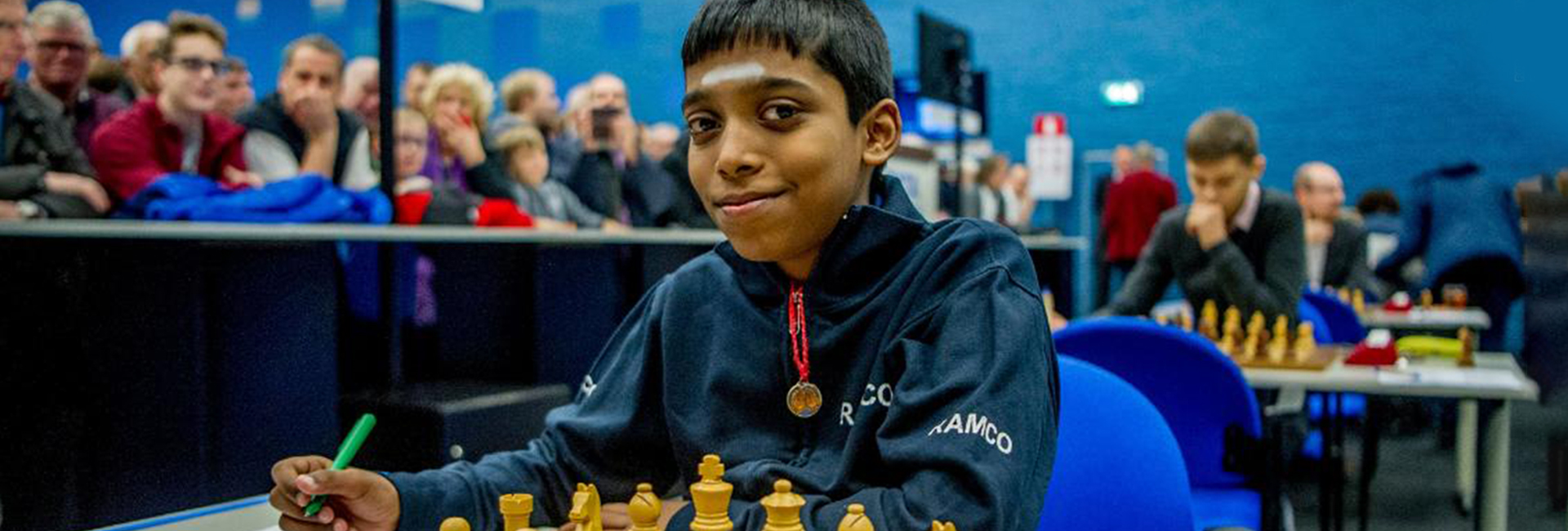(January 30, 2024) It was only during the lockdown of 2020, that the London based chess player Bodhna Sivanandan began learning the game, and in 2023 she made history by clinching the title of England’s first World Youth Champion in 25 years, stunning the world. The chess prodigy who has caught attention of the entire chess fraternity and the worldwide media even had the opportunity to play a game of chess with British PM Rishi Sunak upon his invitation to 10 Downing Street.

Bodhna Sivanandan with Rishi Sunak
“I always try my best to win. Sometimes it happens, and sometimes it doesn’t,” the eight-year-old who holds the title of Woman Candidate Master said in an interview.
Extraordinary feats
2023 had been full of extraordinary victories for the young player. She defeated former British chess champion Peter Lee in an exhibition match, garnering praises from all around. Impressed by her talent, International Master Lawrence Trent tweeted, “The maturity of her play, her sublime touch, it’s truly breath taking…I have no doubt she will be England’s greatest player and most likely one of the greatest the game has ever seen”.
With her phenomenal performance at the Classical, Treble Crown and the latest European Rapid and Blitz Chess Championship 2023 held in Zagreb, Croatia, Bodhna has become one of the most loved international chess stars.


Bodhna Sivanandan
At the European Blitz Chess Championship 2023, she defeated a number of female grandmasters from across the world. In the penultimate round, she even earned victory over international master, Lorin D’Costa, the coach of the England women’s chess team. The European Blitz Chess Championship had witnessed a massive number of registrations with 555 players, including 48 grandmasters and 50 international masters as participants. Bodhna managed to shine above all, winning the the best women’s player award.
Early start
Bodhna was just five when she embarked on her chess journey, quickly mastering the intricacies of the game. A mere 15 months later, in March 2022 she had clinched silver in both Rapid and Blitz European under eight girls’ tournaments, establishing herself as the world No. 1 girl in Blitz for her age group with an impressive margin of 322 FIDE points. Leonard Barden, the English chess master, broadcaster and journalist described the little chess player as ‘exceptional’ then.
Later in the European Schools under eight age group championships held in Rhodes in May 2022, she won all the 24 games winning three gold medals. She was just seven then.
The same year in August, Bodhna participated in the British Chess Championship in Torquay, earning two wins and a draw defeating the then reigning U12 champion.


Bodhna Sivanandan
Stumbling into chess
Talking about how she discovered chess, Bodhna shared in an interview, “One of my father’s friends was throwing away some stuff because it was Covid. Inside that there was a chess board. I was curious about the pieces and started playing.” She was just five then.
“Accidentally she started chess,” her father Sivanandan Velayutham, remarked in an another interview.
Recognising her interest in the game he started taking her around the English Chess Federation and to other people in England who play and support chess. These individuals proved to be not only friendly but also supportive of Bodhna’s endeavours.
Chess in the UK
The British government is taking lots of initiatives to promote the game. As part of a new package announced last year, the UK’s Department for Culture, Media and Sport (DCMS) will be investing GBP 500,000 in the English Chess Federation (ECF) over two years to nurture the next generation of world-class talent.
The funds will be utilised for specialised coaching, training camps, and advanced computer analysis for international competitions, providing crucial support to both established grandmasters and emerging players.


Bodhna Sivanandan at UK Prime Minister’s residence with other delegates
In an interview given before the announcement and the multiple wins of 2023, the grade four student of St John Fisher Primary School of Harrow in London had shared, “My school has a chess club but it’s just for grade six students, so I am not allowed.”
When asked how does she think she would fare if allowed to play with sixth graders, “I think, I would probably win,” she had replied with a smile.




